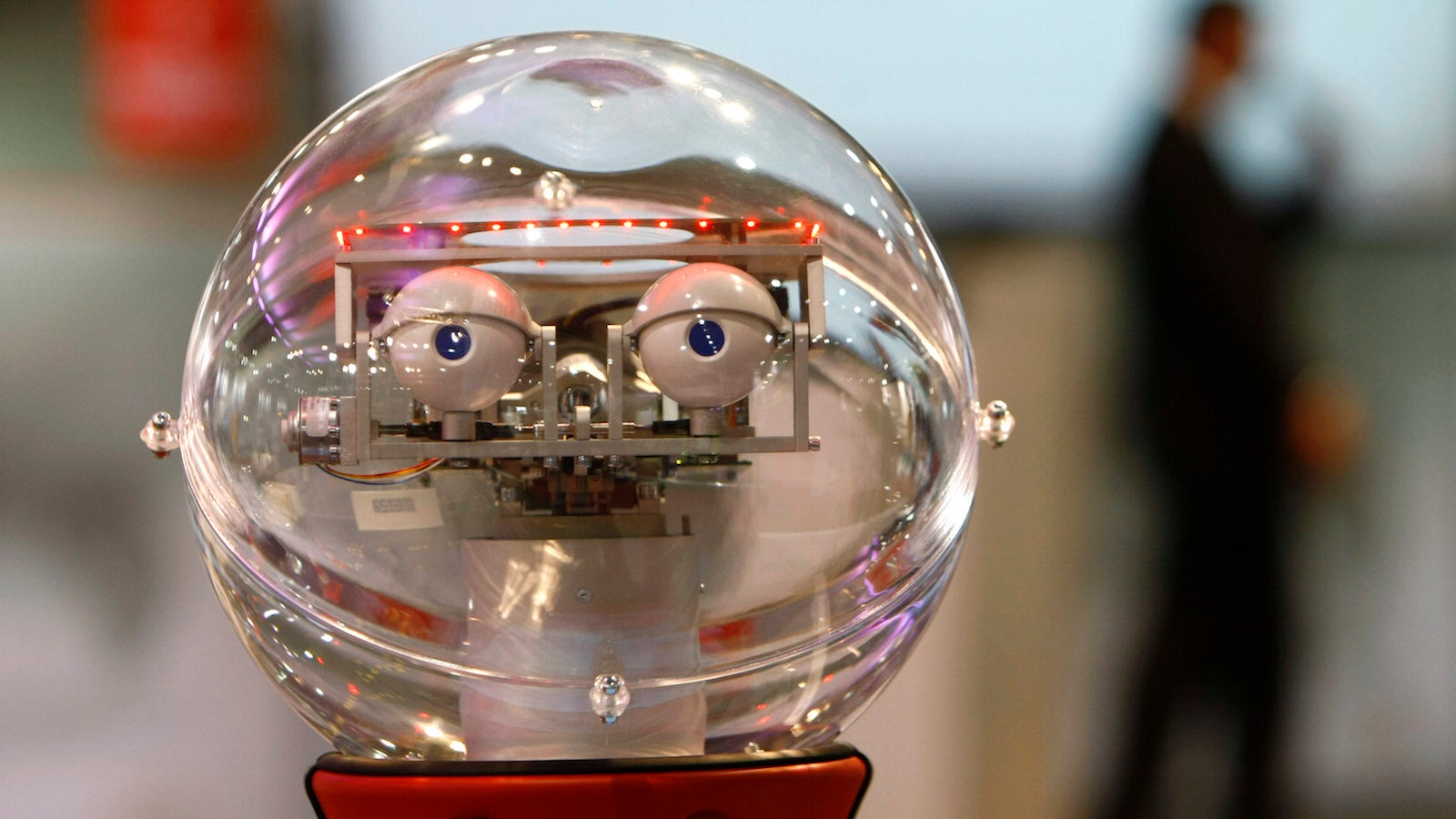Managers are baffled about how to handle their robot underlings
A lot of people today are worrying about robots taking over our jobs. But the more pressing question is actually how we will manage our robot employees.


A lot of people today are worrying about robots taking over our jobs. But the more pressing question is actually how we will manage our robot employees.
Many industries are already incorporating artificial intelligence into their daily operations. The financial industry uses robo-analysts to offer clients investment advice. Smart glasses are helping field workers access data and instructions as they repair equipment. And agriculture is benefiting from drones that can treat crops and spot signs of disease and drought.
There’s just one problem. Accenture’s recent analysis of the managers who will have to implement this significant change suggests that they’re not sure just how to handle their robot underlings.
For one thing, many of the tasks that managers devote the bulk of their time to today are prime candidates for automation: planning and coordinating workflow, monitoring employees, reporting on progress toward goals, and maintaining standards. Artificial intelligence will increasingly free managers from these time-consuming tasks to focus on work that is more uniquely human. Such “judgment work” requires complex thinking, analytical interpretation, and higher-order reasoning. That means managers will be able to focus on the more creative and interpersonal parts of their jobs: helping staff work through problems, interacting directly with customers, and coming up with new ideas.
Yet 57% of the 1,700 managers we spoke to around the world are uncertain about whether they have the skills to succeed in their roles over the next five years. These include knowledge of digital technologies and managing organizational structures that are more fluid and horizontal. And roughly a third (35%) say they are concerned about the impact of artificial intelligence on their jobs.
A big part of the issue boils down to trust. When asked if they would trust the advice of intelligent systems in making business decisions, only 14% of lower-level managers said they would, compared to nearly half (46%) of executive-level managers.
What this suggests is that companies need to do a better job of encouraging experimentation in fitting new artificial intelligence into their current processes and teams. Managers need to know that automation and artificial intelligence aren’t something that’s happening to them. Rather, they’re in control of incorporating these technologies into the fabric of their organization.
The other critical step forward is to shift expectations about the management skills of the future. More than 40% of managers in our survey said that digital and technology skills would be among the most important they will need in the next five years. Less than half that amount cited people development and coaching (21%), collaboration (20%), or social networking (20%).
In fact, strong interpersonal skills will be paramount for managers in the years ahead. They’ll be leading the effort to create a less structured workforce and manage the introduction of new technologies in the first place. Above all, managers will need interpersonal skills in order to support their teams as they learn to work with robots—and as robots learn to work with them.